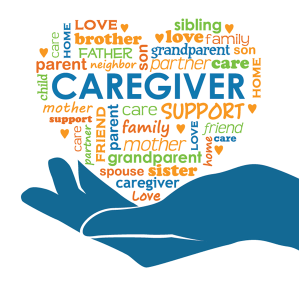It is estimated that 65 million Americans provided caregiving duties in the past year. Many family members take on caregiving duties because they already have a relationship with the person in need and caregiving duties can often be provided at little to no cost. Family members also feel a sense of duty to care for their loved ones.
The responsibility of caregiving is significant and can take a toll on the caregiver’s physical and emotional health. Caregivers may feel isolated or alone in their duties. Caregiving responsibilities may strain relationships, put financial pressure on the caregiver and cause stress to rise among family members. Caregivers are also more likely to experience depression, poor health habits, poor sleeping habits, stress and other factors that negatively impact their physical and emotional health. When caregivers experience a decline in their own health, this is known as caregiver burnout.
Symptoms of caregiver burnout include irritability, feeling hopeless, exhaustion and loss of interest in activities. When caregivers neglect their own health and happiness, they are unable to provide for themselves or their loved ones.
Here are three ways to prevent caregiver burnout:
- Talk to a friend or coworker about your caregiving responsibilities. Some caregivers may feel like they cannot “complain” about their caregiving duties. However, acknowledging the difficulty of caregiving and the strain it has on their physical and emotional health can provide caregivers with a sense of relief.
n - Make time for yourself. Caregivers often feel guilty if they take a break or indulge in activities that take them away from their caregiving responsibilities. But it is important for caregivers to prioritize their happiness otherwise they are at risk of experiencing stress, anxiety or even depression. Set aside time to watch your TV show or cook your favorite meal.
n - Exercise. A brisk walk or a yoga session can do wonders for the mind and body. It can release energy, clear your mind and make you feel better.
Additional ways can be found here. We support caregivers through our Intensive Family Support Services and Senior Well-Being program. Our services include respite services, family consultation and more.
For more information about our caregiver programs, please call our Access Center at 1-800-963-3377.










